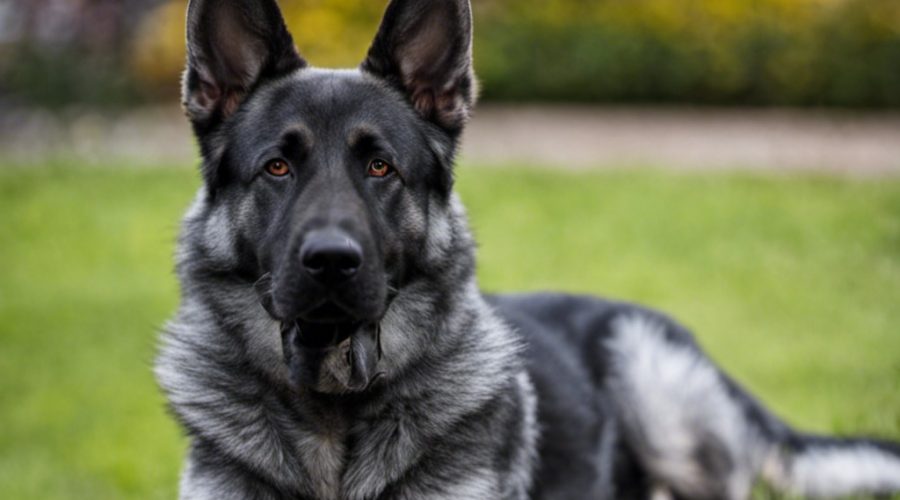The Journey from Newborn to 1 Month German Shepherd Puppies
The transition from newborn 1 month German Shepherd puppies to full-size 1 month German Shepherd puppies is a rapid and fascinating process. During their first month of life, these puppies undergo significant changes and developments.

Week 1: The Newborn Stage
Newborn 1 month German Shepherd puppies are entirely dependent on their mother. They’re born with their eyes closed and ears sealed, relying solely on their sense of touch and smell to navigate their environment. At this stage, they spend most of their time sleeping and nursing.

Week 2: Eyes Begin to Open
Around 10-14 days old, the puppies’ eyes start to open, though their vision is still poor. They become more active but are still heavily reliant on their mother for warmth and nutrition.

Week 3: Increased Mobility
By the third week, 1 week 1 month German Shepherd puppies begin to stand and take their first wobbly steps. Their ears start to open, and they become more responsive to sounds in their environment.

Week 4: The One-Month Milestone
At four weeks, we have full-size 1 month German Shepherd puppies. They’re now much more active, playing with their siblings and exploring their surroundings. Their teeth are coming in, and they may start showing interest in solid food.

Physical Characteristics of 1 Month Old German Shepherd Puppies
At one month old, German Shepherd puppies are adorable bundles of fur with distinctive features:
- Weight: Typically between 4-8 pounds
- Length: About 8-10 inches from nose to tail
- Coat: Soft, fluffy puppy coat
- Eyes: Fully open, usually blue-gray (will change color later)
- Ears: Floppy and starting to respond to sounds
It’s important to note that these are averages, and individual puppies may vary. Some may be larger or smaller than their littermates, which is normal at this stage.

Behavioral Development of 1 Month German Shepherd Puppies
At one month, German Shepherd puppies are entering a critical period of socialization and learning. Here’s what you can expect:
- Increased playfulness with littermates
- Beginning to explore their environment more confidently
- Starting to respond to visual and auditory stimuli
- May begin to show early signs of individual personalities
- Still heavily dependent on their mother, but showing more independence
Nutrition for 1 Month Old German Shepherd Puppies
At this stage, 1 month old German Shepherd puppies are still primarily nursing from their mother. However, they may start showing interest in solid food. If you’re caring for these puppies:
- Continue to ensure the mother has access to high-quality, nutrient-rich food to support milk production
- You may introduce puppy milk replacer if needed
- Towards the end of the month, you can start offering small amounts of softened puppy food
Always consult with a veterinarian before making any significant changes to a puppy’s diet at this young age.

Care and Handling of 1 Month German Shepherd Puppies
While 1 month German Shepherd puppies are becoming more active, they still require gentle handling and careful monitoring:
- Keep the whelping area clean and warm
- Handle puppies gently and frequently to get them used to human touch
- Monitor each puppy’s weight gain to ensure they’re thriving
- Begin very basic socialization, but be cautious about exposure to potential illnesses
- Schedule a vet check-up if you haven’t already

From 1 Month to 2 Months: What to Expect
As your German Shepherd puppies transition from 1 month to 2 month 1 month German Shepherd puppies, you’ll notice rapid changes:
- Significant increase in size and weight
- More coordinated movements and playfulness
- Increased interest in solid food
- Beginning of house training
- More defined personalities emerging

1 Month German Shepherd Puppies Price: What to Consider
If you’re looking to purchase a German Shepherd puppy, it’s important to understand that reputable breeders typically don’t sell puppies at just one month old. The 1 month German Shepherd puppies price can vary widely based on several factors:
- Breeder reputation and location
- Puppy’s lineage and pedigree
- Health certifications and genetic testing of parents
- Whether the puppy is intended as a pet, show dog, or working dog
While it’s not common to find 1 month German Shepherd puppies for sale (as they’re usually too young to leave their mother), prices for German Shepherd puppies generally range from $500 to $3000 or more. Always ensure you’re dealing with a reputable breeder who prioritizes the health and well-being of their puppies.

The Importance of Early Socialization
While 1 month old German Shepherd puppies are still very young, this is a crucial time for early socialization. Proper socialization during these early weeks can help shape a puppy’s future temperament and behavior:
- Gentle handling by humans helps puppies become comfortable with touch
- Exposure to various household sounds can prevent future noise phobias
- Interaction with littermates teaches important dog-to-dog social skills
- Brief, positive experiences with new environments lay the groundwork for confidence

Health Considerations for 1 Month German Shepherd Puppies
At one month old, German Shepherd puppies are still vulnerable to various health issues. Regular veterinary check-ups are crucial. Some health considerations include:
- Ensuring proper weight gain
- Monitoring for signs of congenital defects
- Beginning deworming treatments as recommended by a vet
- Watching for signs of illness such as lethargy, loss of appetite, or diarrhea

Preparing for Your Puppy: From 1 Month to Homecoming
If you’re planning to bring a German Shepherd puppy home in the near future, use the time while they’re still 1 month old to prepare:
- Puppy-proof your home
- Purchase necessary supplies (crate, bed, food and water bowls, puppy food, toys)
- Research and choose a veterinarian
- Plan for proper nutrition and exercise
- Learn about positive reinforcement training techniques

Conclusion
1 month German Shepherd puppies are at a fascinating stage of development. They’re growing rapidly, becoming more aware of their environment, and laying the foundation for their future personalities. Whether you’re a breeder caring for a litter or a potential owner eagerly awaiting the day you can bring your puppy home, understanding this crucial stage of development is key to raising a healthy, well-adjusted German Shepherd.
Remember, while it’s exciting to think about welcoming a new puppy into your home, 1 month old puppies are still too young to be separated from their mother and littermates. Responsible breeders typically keep puppies until they’re at least 8 weeks old. Use this time to learn, prepare, and get ready for the joyful challenge of raising a German Shepherd puppy.
If you would like to inquire about our available puppies, you can do so here.





























































Our Social Media Channels